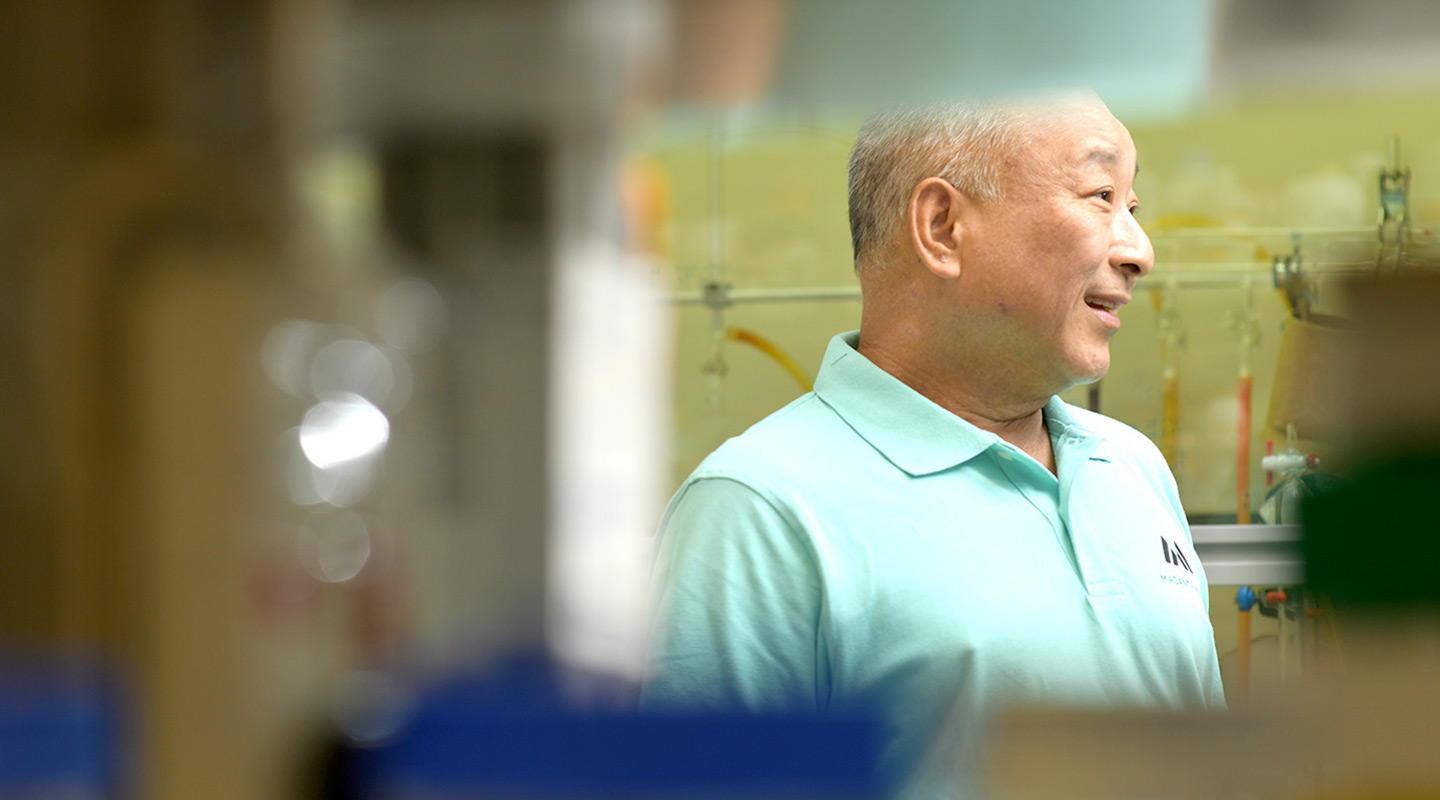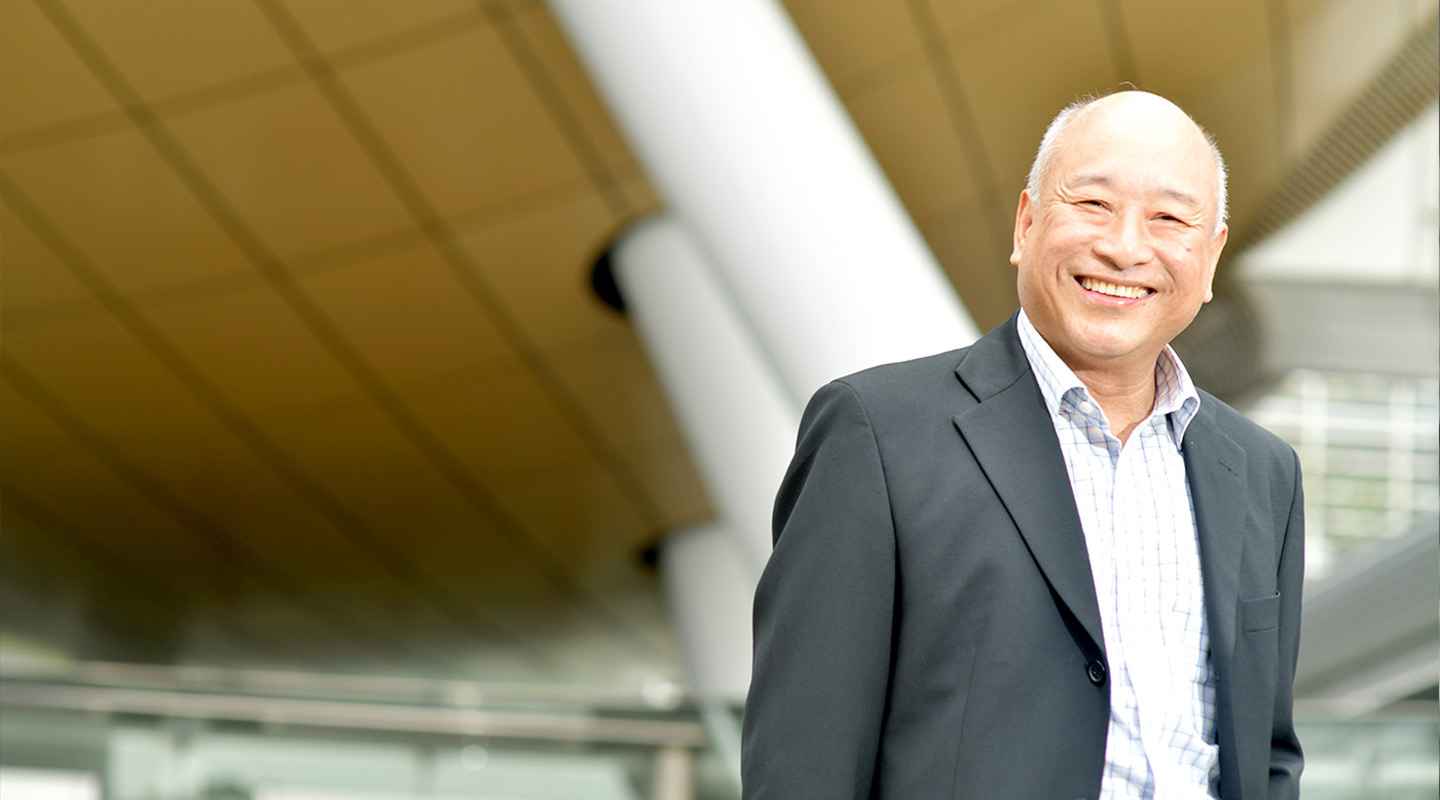Dear readers, With the launch of e-newsletter CUHK in Focus, CUHKUPDates has retired and this site will no longer be updated. To stay abreast of the University’s latest news, please go to https://focus.cuhk.edu.hk. Thank you.
Making Meat in a Test Tube
Kenneth Lee envisions a 'biofarming' future for Hong Kong

CUHK embryologist Kenneth Lee is working to manufacture living tissue in the lab. That shows great promise for developing human organ patches that could be used to repair the body.
There’s another important use for manufactured tissue: we can eat it. Professor Lee is on the board of directors of a company called Avant Meats, which is developing edible animal tissue.
The company is concentrating first on fish maw, or the swim bladder, which is in high demand in Chinese cuisine. Professor Lee also sees great potential for creating chicken nuggets, which would be far easier to introduce into a human body than heart or liver tissue: via the mouth.
‘We’re not eating human heart, we’re not cannibals!’ he says with a laugh. ‘If we take a bit of skin and make it into pluripotent stem cells, we can force them to be muscles. That’s basically meat,’ he explains. These ‘biofarmers’ would then be able to construct real animal meat that requires no animal to be killed.
Professor Lee sees great potential to biofarm other high-priced foods such as foie gras. Goose liver is typically farmed by force feeding geese, a process that animal-rights groups oppose. Not only would lab-grown foie gras have none of those ethical concerns, Professor Lee believes the fat content could also be replaced with omega-3 rich olive oil, creating ‘heart-healthy’ foie gras.
Hong Kong, having long ago lost its farming industry, could become a very different form of agricultural capital. ‘We can create a whole new industry,’ Professor Lee enthuses. ‘We can have labs with stem-cell culture systems, big vats producing all these meats, and it could create a lot of employment. We don’t need land – that’s my vision for Hong Kong.’
This would also be a far more efficient way of producing meat. In conventional farming, only 3% of the energy used to raise and feed cows eventually becomes beef. The ‘energy conversion’ rate is better but still only 7% for pork.
Professor Lee’s enthusiasm knows no national boundaries: he is working with an Irish startup Macánta Meats to produce lab-grown pork, a company now looking for seed capital in Hong Kong.

Macánta Meats believes it can culture pork from the skin of pigs in around four weeks, whereas it takes around six months to raise a pig for slaughter. It intends to carve out a ‘meat brewery’ in Ireland, noting that a lot of conventional agriculture begins in a laboratory, too.
Mark Post, the chair of the Department of Physiology at Maastricht University in the Netherlands, created the first ‘slaughter-free hamburger’ in 2013. The single burger cost €250,000 to make out of cow cells, rather than raising and killing a cow. Post has formed a company, Mosa Meat, that is developing lab-cultured meat as well.
Stem cells could also be used to fabricate lab-grown rhino horn or tiger bone. These tissues could be used for Chinese medicine as a substitute for illegally poached animal parts that currently lead to the deaths of huge numbers of endangered animals.
The environmental applications are extensive. Professor Lee, who is chief of the thematic research programme for Developmental and Regenerative Biology at CUHK, is also working with a group in Norway. That team is building out an ‘animal ark’ of pluripotent stem cells from as many living species as possible – before they’re driven into extinction by human hand.
‘Regenerative medicine is the wild frontier now,’ Professor Lee says. ‘What drives an embryo, which is one cell, to become hundreds and thousands of cells is a very complex story. If you understand that, you can understand how you regenerate.’
Of course, all these uses for stem cells raise ethical questions. The creation of life in a lab is problematic to some. To scientists, it’s their job to explore these potential solutions to solve many pressing health or hunger issues.
‘I don’t know if drinking these chemicals can make you younger, I don’t know if anybody has had the guts to do that,’ he says jokingly. ‘Our field is totally scandalous.’
By Alex Frew McMillan
This article was originally published on CUHK Homepage in Jun 2019.